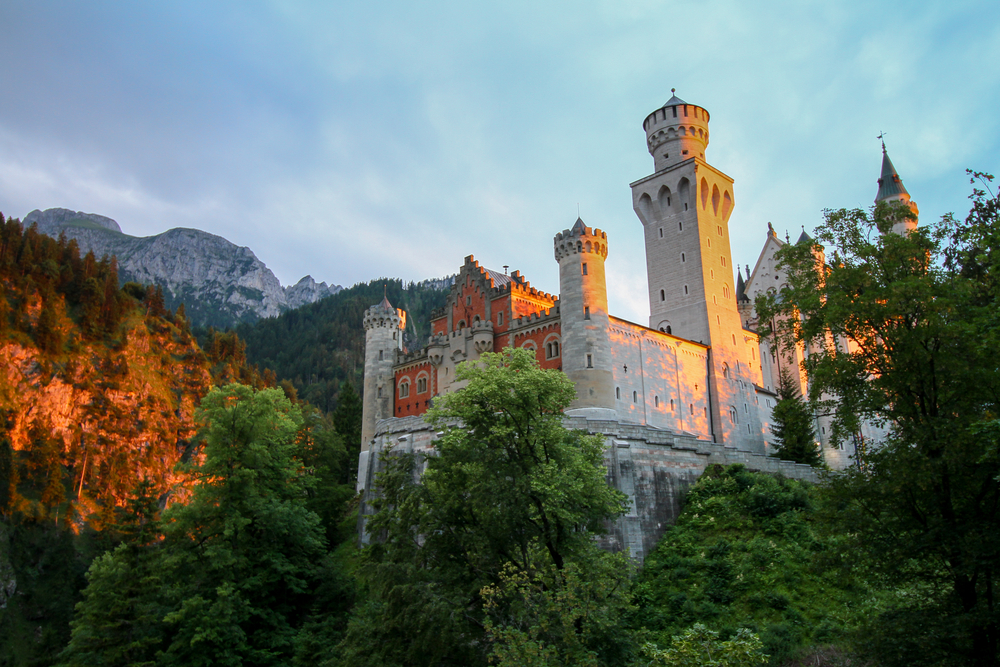
First rule: There are no rules. These resources are completely free and at your disposal. Use as much, or as little, as you want. Study casually, or work to create a portfolio of academic work that will blow the socks off of the educational establishment.
Feel free to adapt the materials for your own purposes. We expect families, business people, backpackers, college students, high school kids, middle aged vacationers, and retirees who are on a late life adventure to take these materials and run with them. We’d be very happy for teachers or travel group leaders to add these materials to their study abroad packets as well.
The nature of open source is collaboration, so please feel free to contribute when you become aware of resources we haven’t listed, or you have project ideas that we haven’t developed. Send us your work and inspire others to reach higher and deeper as they travel!
Our goal with this project is to inspire adventure and further education through experiential learning around the world. Please send us a note and let us know how you used these resources!
Buffet Style Learning
Does the menu look overwhelming? Looking for a formula to use as a skeleton for your studies in Germany?
Choose:
- Two books
- Two films
- Three articles
- One Problem & Solution or Project Option
- One Cultural Assignment
Table of Contents
- Books
- Books for Kids
- Films
- Articles
- Project Options
- Problems & Solutions
- Cultural Assignments
- Create Your Own Coursework
Book Recommendations
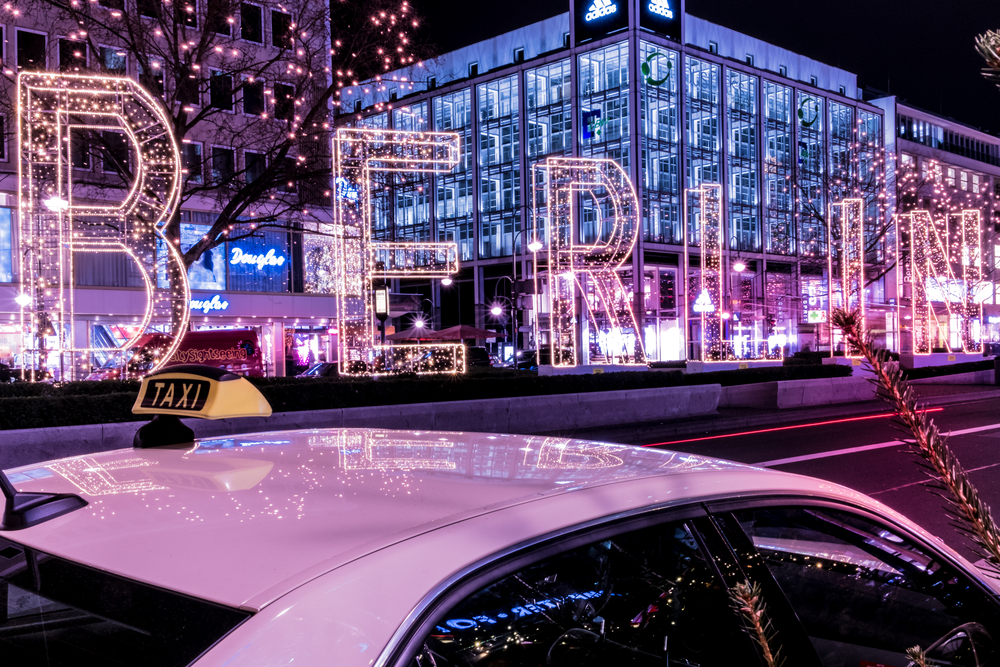
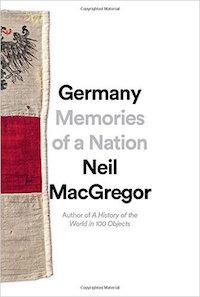 Germany: Memories of a Nation
Germany: Memories of a Nation
by Neil MacGregor
For the past 140 years, Germany has been the central power in continental Europe. Twenty-five years ago a new German state came into being. How much do we really understand this new Germany, and how do its people understand themselves?
Neil MacGregor argues that, uniquely for any European country, no coherent, overarching narrative of Germany’s history can be constructed, for in Germany both geography and history have always been unstable. Its frontiers have constantly shifted. Königsberg, home to the greatest German philosopher, Immanuel Kant, is now Kaliningrad, Russia; Strasbourg, in whose cathedral Wolfgang von Geothe, Germany’s greatest writer, discovered the distinctiveness of his country’s art and history, now lies within the borders of France. For most of the five hundred years covered by this book Germany has been composed of many separate political units, each with a distinct history. And any comfortable national story Germans might have told themselves before 1914 was destroyed by the events of the following thirty years.
German history may be inherently fragmented, but it contains a large number of widely shared memories, awarenesses, and experiences; examining some of these is the purpose of this book. MacGregor chooses objects and ideas, people and places that still resonate in the new Germany—porcelain from Dresden and rubble from its ruins, Bauhaus design and the German sausage, the crown of Charlemagne and the gates of Buchenwald—to show us something of its collective imagination. There has never been a book about Germany quite like it.
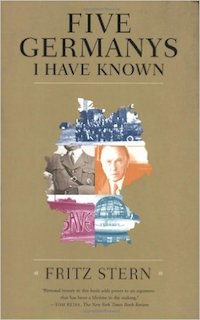 Five Germanys I Have Known
Five Germanys I Have Known
by Fritz Stern
The “German question” haunts the modern world: How could so civilized a nation be responsible for the greatest horror in Western history? In this unusual fusion of personal memoir and history, the celebrated scholar Fritz Stern refracts the question through the prism of his own life. Born in the Weimar Republic, exposed to five years of National Socialism before being forced into exile in 1938 in America, he became a world-renowned historian whose work opened new perspectives on the German past.
Stern brings to life the five Germanys he has experienced: Weimar, the Third Reich, postwar West and East Germanys, and the unified country after 1990. Through his engagement with the nation from which he and his family fled, he shows that the tumultuous history of Germany, alternately the strength and the scourge of Europe, offers political lessons for citizens everywhere?especially those facing or escaping from tyranny. In this wise, tough-minded, and subtle book, Stern, himself a passionately engaged citizen, looks beyond Germany to issues of political responsibility that concern everyone. Five Germanys I Have Known vindicates his belief that, at its best, history is our most dramatic introduction to a moral civic life.
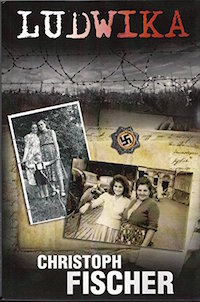 Ludwika: A Polish Woman’s Struggle To Survive In Nazi Germany
Ludwika: A Polish Woman’s Struggle To Survive In Nazi Germany
by Christoph Fischer
It’s World War II and Ludwika Gierz, a young Polish woman, is forced to leave her family and go to Nazi Germany to work for an SS officer. There, she must walk a tightrope, learning to live as a second-class citizen in a world where one wrong word could spell disaster and every day could be her last. Based on real events, this is a story of hope amid despair, of love amid loss . . . ultimately, it’s one woman’s story of survival.
Editorial Review:
“This is the best kind of fiction—it’s based on the real life. Ludwika’s story highlights the magnitude of human suffering caused by WWII, transcending multiple generations and many nations.
WWII left no one unscarred, and Ludwika’s life illustrates this tragic fact. But she also reminds us how bright the human spirit can shine when darkness falls in that unrelenting way it does during wartime.
This book was a rollercoaster ride of action and emotion, skilfully told by Mr. Fischer, who brought something fresh and new to a topic about which thousands of stories have already been told.”
 Emilia: The darkest days in history of Nazi Germany through a woman’s eyes
Emilia: The darkest days in history of Nazi Germany through a woman’s eyes
by Ellie Midwood
This story is dedicated to all the victims of sexual slavery in German concentration camps, who had to endure inhumane suffering under the Nazi regime. For many years after the atrocities had been committed, both sides – the abusers and the abused – still vehemently denied certain aspects of the Holocaust, and even the victims refused to admit the ugly truth about their incarceration, some out of fear, some out of shame, until several women decided to break an unofficial oath of silence, and brought their stories to life.
This book is based on one of those stories. Emilia is a young Jewish woman, whose life slowly turns into a nightmare as she finds herself facing a dreadful choice: to secure her family’s very existence by offering herself to one of the men who had put her behind the walls with barbed wire, or perish together with the least fortunate ones. Only, the Krakow ghetto and her very first abuser pale in comparison to what is yet to come, as she’s being sent to a place that soon will turn into her own personal hell and that will scar her for life…
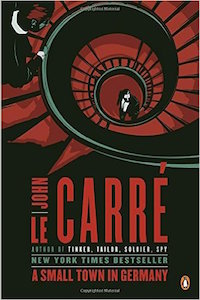 A Small Town in Germany: A Novel
A Small Town in Germany: A Novel
by John le Carre
“Haven’t you realized that only appearances matter?”
The British Embassy in Bonn is up in arms. Her Majesty’s financially troubled government is seeking admission to Europe’s Common Market just as anti-British factions are rising to power in Germany. Rioters are demanding reunification, and the last thing the Crown can afford is a scandal. Then Leo Harting—an embassy nobody—goes missing with a case full of confidential files. London sends Alan Turner to control the damage, but he soon realizes that neither side really wants Leo found—alive.
Set against the threat of a German-Soviet alliance, John le Carré’s A Small Town in Germany is a superb chronicle of Cold War paranoia and political compromise.
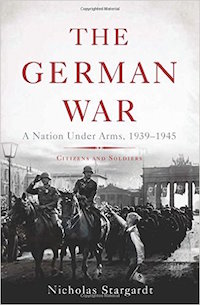 The German War: A Nation Under Arms, 1939–1945
The German War: A Nation Under Arms, 1939–1945
by Nicholas Stargardt
As early as 1941, Allied victory in World War II seemed all but assured. How and why, then, did the Germans prolong the barbaric conflict for three and a half more years?
In The German War, acclaimed historian Nicholas Stargardt draws on an extraordinary range of primary source materials—personal diaries, court records, and military correspondence—to answer this question. He offers an unprecedented portrait of wartime Germany, bringing the hopes and expectations of the German people—from infantrymen and tank commanders on the Eastern front to civilians on the home front—to vivid life. While most historians identify the German defeat at Stalingrad as the moment when the average German citizen turned against the war effort, Stargardt demonstrates that the Wehrmacht in fact retained the staunch support of the patriotic German populace until the bitter end.
Astonishing in its breadth and humanity, The German War is a groundbreaking new interpretation of what drove the Germans to fight—and keep fighting—for a lost cause.
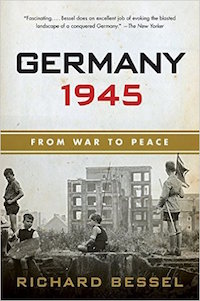 Germany 1945: From War to Peace
Germany 1945: From War to Peace
by Richard Bessel
“Fascinating….Bessel does an excellent job of evoking the blasted landscape of a conquered Germany.” —The New Yorker
“A sober yet powerful account.” —New York Times Book Review
Authoritative and dramatic, Germany 1945 by distinguished British historian Richard Bessel is groundbreaking history that brilliantly explores the devastation and remarkable rebirth of Germany at the end of World War II. Called “a masterly account by a first rate historian,” by Ian Kershaw (Hitler), Germany 1945 is sure to become the definitive work on the subject.
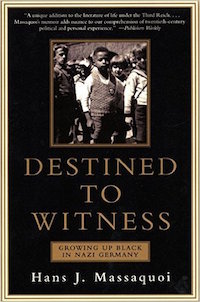 Destined to Witness: Growing Up Black in Nazi Germany
Destined to Witness: Growing Up Black in Nazi Germany
by Hans J. Massaquoi
This is a story of the unexpected. In Destined to Witness, Hans Massaquoi has crafted a beautifully rendered memoir — an astonishing true tale of how he came of age as a black child in Nazi Germany. The son of a prominent African and a German nurse, Hans remained behind with his mother when Hitler came to power, due to concerns about his fragile health, after his father returned to Liberia.
Like other German boys, Hans went to school; like other German boys, he swiftly fell under the Fuhrer’s spell. So he was crushed to learn that, as a black child, he was ineligible for the Hitler Youth. His path to a secondary education and an eventual profession was blocked. He now lived in fear that, at any moment, he might hear the Gestapo banging on the door — or Allied bombs falling on his home. Ironic,, moving, and deeply human, Massaquoi’s account of this lonely struggle for survival brims with courage and intelligence.
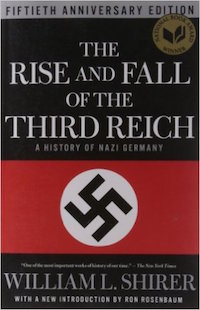 The Rise and Fall of the Third Reich: A History of Nazi Germany
The Rise and Fall of the Third Reich: A History of Nazi Germany
by William L. Shirer
Hailed as “one of the most important works of history of our time” (The New York Times), this definitive chronicle of Hitler’s rise to power is back in hardcover with a new introductory essay by Ron Rosenbaum (Explaining Hitler and How the End Begins) commemorating the fiftieth anniversary of its National Book Award win.
The fiftieth anniversary edition of the National Book Award–winning bestseller that is the definitive study of Adolf Hitler, the rise of Nazi Germany, the Holocaust, and World War II. This special edition now features a new introduction by Ron Rosenbaum, author of Explaining Hitler and How the End Begins.
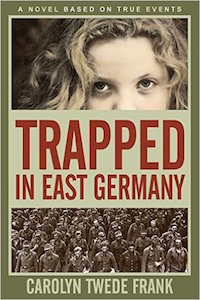 Trapped in East Germany
Trapped in East Germany
by Carolyn Twede Frank
It is the autumn of 1943, and Karin Graeber is keenly aware of the uneasy tide of change swirling around her. She is not alone—in wartime Berlin, it seems that everyone has been swept up in the frightening transformation of their city. No more than a child, Karin is far too young to understand the Nazi presence or the drone of air-raid sirens or the absence of her beloved Pappa, a soldier in the German army. But when a bomb destroys their home, Karin is forced to grow up far too soon as her family joins the tens of thousands displaced in the raids on the city. Relying on their faith as Latter-day Saints, Karin and her family begin a journey that will prove the indomitable strength of the human spirit.
What follows is the sweeping narrative of one young girl’s journey through war and beyond—from her childlike observations of World War II in Germany to her changing view of the world as she grows up in a land divided by war. Now, driven by starvation and the perilous existence of refugees, Karin and her family must draw upon a deep reservoir of strength and faith to sustain them through the harrowing escape ahead.
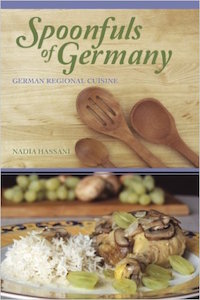 Spoonfuls of Germany: German Regional Cuisine: Expanded Edition
Spoonfuls of Germany: German Regional Cuisine: Expanded Edition
by Nadia Hassani
Now expanded with new recipes and photos, Spoonfuls of Germany goes beyond the sauerkraut and knackwurst stereotype to unveil the often-overlooked diversity of German regional cuisine. Here you ll find not only classic dishes such as spaetzle and sauerbraten, but also forgotten delicacies like Westphalian pumpernickel pudding and Windmill Cake from Frisia. Fascinating sidebars profile foods and the history and people behind them with anecdotes and lore that will surprise and enchant readers. Includes 200 easy-to-follow recipes with a 16-page color photo insert.
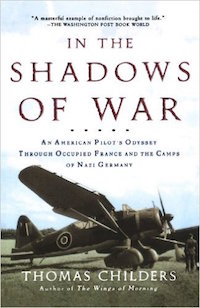 In the Shadows of War: An American Pilot’s Odyssey Through Occupied France and the Camps of Nazi Germany
In the Shadows of War: An American Pilot’s Odyssey Through Occupied France and the Camps of Nazi Germany
by Thomas Childers
A “masterful example of nonfiction brought to life”* ?the harrowing account of an aviator’s World War II journey and the two people who helped him along the way
In a small village in France during the fateful summer of 1944, three disparate lives converged in an unlikely secret alliance. Just after D-Day, Colette Florin hid downed American bomber pilot Roy Allen in her rooms above the tiny girls’ school where she taught. While concealing him, she was drawn deeper into the clandestine world of the regional underground. There she met the local leader of the Resistance: Pierre Mulsant, a young Frenchman trained by the British secret service who had parachuted into France in the spring of 1944.
Drawn from extensive interviews, letters, and archival documents in Britain, France, Germany, and the United States, In the Shadows of War follows the fateful twists and turns of Allen’s journey from rural France to Paris, capture by the Gestapo, imprisonment in a Nazi concentration camp and then a POW camp, and eventual liberation. It is an unforgettable, profoundly moving human drama of love and courage and sacrifice.
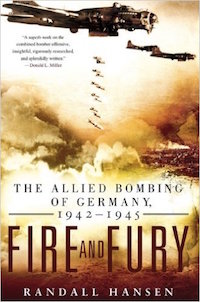 Fire and Fury: The Allied Bombing of Germany, 1942-1945
Fire and Fury: The Allied Bombing of Germany, 1942-1945
by Randall S. Hansen
During the Second World War, Allied air forces dropped nearly two million tons of bombs on Germany, destroying some 60 cities, killing more than half a million German citizens, and leaving 80,000 pilots dead. But the terrible truth is that much of the bombing was carried out against the expressed demands of the Allied military leadership, leading to the needless deaths of hundreds of thousands of civilians.
Focusing on the crucial period from 1942 to 1945, Fire and Fury tells the story of the American and British bombing campaign through the eyes of those involved: the military and civilian command in America, Britain, and Germany, the aircrews in the skies who carried out their orders, and civilians on the ground who felt the fury of the Allied attacks. Here, for the first time, the story of the American and British air campaigns is told-and the cost accounted for.
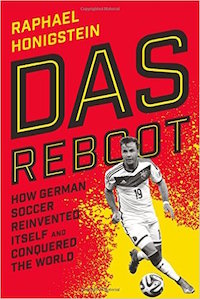 Das Reboot: How German Soccer Reinvented Itself and Conquered the World
Das Reboot: How German Soccer Reinvented Itself and Conquered the World
by Raphael Honigstein
“A beautiful story, expertly told.” —Per Mertesacker, Arsenal defender and member of the German national team, winners of the 2014 World Cup
Estádio do Maracanã, July 13, 2014, the last ten minutes of extra time in the World Cup Final: German forward Mario Götze jumps to meet a floated pass from André Schürrle, cushions the ball with his chest, and in one fluid motion volleys the ball past the onrushing Argentine goalkeeper into the far corner of the net. The goal wins Germany the World Cup for the first time in almost thirty years. As the crowd roars, Götze looks dazed, unable to comprehend what he has done.
In Das Reboot, Raphael Honigstein charts the return of German soccer from the dreary functionality of the late 1990s to Götze’s moment of sublime, balletic genius and asks: How did this come about? The answer takes him from California to Stuttgart, from Munich to the Maracanã, via Dortmund and Amsterdam. Packed with exclusive interviews with key figures, including Jürgen Klinsmann, Thomas Müller, Oliver Bierhoff, and many more, Honigstein’s book reveals the secrets of German soccer’s success.
 Letters Over The Wall: Life in Communist East Germany
Letters Over The Wall: Life in Communist East Germany
by David F. Strack
Four East Germans corresponded for decades with an American teacher, openly sharing about their frustrations, joys, and challenges of living in a communist country. Author David F. Strack kept those personal letters and has now distilled them into a riveting memoir about what life was like behind the Iron Curtain.
Read about the lives of Gerhard, Jutta, Jürgen, and Barbara in their own words, as they share about their jobs, families, and political opinions. Learn how the fall of the Wall and the reuniting of “Ost und West” affected their lives, bringing wonderful freedoms to all of them, yet also economic disappointment to one. LETTERS OVER THE WALL is an enthralling memoir, chronicling four lives over a span of forty years, during a time of political upheaval and great societal change.
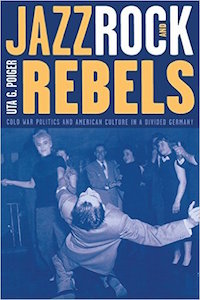 Jazz, Rock, and Rebels: Cold War Politics and American Culture in a Divided Germany
Jazz, Rock, and Rebels: Cold War Politics and American Culture in a Divided Germany
by Uta G. Poiger
In the two decades after World War II, Germans on both sides of the iron curtain fought vehemently over American cultural imports. Uta G. Poiger traces how westerns, jeans, jazz, rock ‘n’ roll, and stars like Marlon Brando or Elvis Presley reached adolescents in both Germanies, who eagerly adopted the new styles. Poiger reveals that East and West German authorities deployed gender and racial norms to contain Americanized youth cultures in their own territories and to carry on the ideological Cold War battle with each other. Poiger’s lively account is based on an impressive array of sources, ranging from films, newspapers, and contemporary sociological studies, to German and U.S. archival materials.
Jazz, Rock, and Rebels examines diverging responses to American culture in East and West Germany by linking these to changes in social science research, political cultures, state institutions, and international alliance systems. In the first two decades of the Cold War, consumer culture became a way to delineate the boundaries between East and West. This pathbreaking study, the first comparative cultural history of the two Germanies, sheds new light on the legacy of Weimar and National Socialism, on gender and race relations in Europe, and on Americanization and the Cold War.
 The Post-War Division of Germany and the Construction of the Berlin Wall: The History of the Cold War Split Between East and West
The Post-War Division of Germany and the Construction of the Berlin Wall: The History of the Cold War Split Between East and West
by Charles River Editors
In the wake of World War II, the European continent was devastated, and the conflict left the Soviet Union and the United States as uncontested superpowers. This ushered in over 45 years of the Cold War, and a political alignment of Western democracies against the Communist Soviet bloc that produced conflicts pitting allies on each sides fighting, even as the American and Soviet militaries never engaged each other.
Though it never got “hot,” the Cold War was a tense era until the dissolution of the USSR, and nothing symbolized the split more than the Berlin Wall, which literally divided the city. Berlin had been a flashpoint even before World War II ended, and the city was occupied by the different Allies even as the close of the war turned them into adversaries. After the Soviets’ blockade of West Berlin was prevented by the Berlin Airlift, the Eastern Bloc and the Western powers continued to control different sections of the city, and by the 1960s, East Germany was pushing for a solution to the problem of an enclave of freedom within its borders. West Berlin was a haven for highly-educated East Germans who wanted freedom and a better life in the West, and this “brain drain” was threatening the survival of the East German economy. In order to stop this, access to the West through West Berlin had to be cut off, so in August 1961, Soviet premier Nikita Khrushchev authorized East German leader Walter Ulbricht to begin construction of what would become known as the Berlin Wall.
The wall, begun on Sunday August 13, would eventually surround the city, in spite of global condemnation, and the Berlin Wall itself would become the symbol for Communist repression in the Eastern Bloc. It also ended Khrushchev’s attempts to conclude a peace treaty among the Four Powers (the Soviets, the Americans, the United Kingdom, and France) and the two German states. The wall would serve as a perfect photo-opportunity for two presidents (Kennedy and Reagan) to hammer the Soviet Communists and their repression, but the Berlin Wall would stand for nearly 30 years, isolating the East from the West. It is estimated about 200 people would die trying to cross the wall to defect to the West. The Post-War Division of Germany and the Construction of the Berlin Wall: The History of the Cold War Split Between East and West looks at the history that led to the construction of the Berlin Wall and the manner in which it was built. Along with pictures of important people, places, and events, you will learn about the construction of the Berlin Wall like never before, in no time at all.
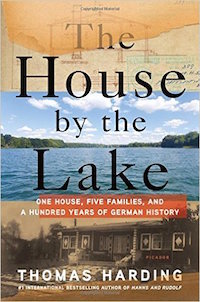 The House by the Lake: One House, Five Families, and a Hundred Years of German History
The House by the Lake: One House, Five Families, and a Hundred Years of German History
by Thomas Harding
In the summer of 1993, Thomas Harding traveled to Germany with his grandmother to visit a small house by a lake on the outskirts of Berlin. It had been her “soul place,” she said?a holiday home for her and her family, but also a refuge?until the 1930s, when the Nazis’ rise to power forced them to leave.
The trip was his grandmother’s chance to remember her childhood sanctuary as it was. But the house had changed, and when Harding returned once again nearly twenty years later, it was about to be demolished. It now belonged to the government, and as Harding began to inquire about whether the house could be saved, he unearthed secrets that had lain hidden for decades. Slowly he began to piece together the lives of the five families who had lived there: a wealthy landowner, a prosperous Jewish family, a renowned composer, a widow and her children, a Stasi informant. All had made the house their home, and all but one had been forced out.
The house had weathered storms, fires and abandonment, witnessed violence, betrayals and murders, and had withstood the trauma of a world war and the dividing of a nation. Breathtaking in scope and intimate in its detail, The House by the Lake is a groundbreaking and revelatory new history of Germany, told over a tumultuous century through the story of a small wooden house.
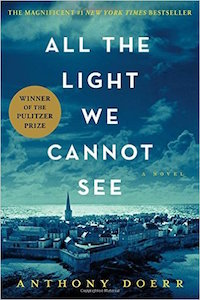 All the Light We Cannot See
All the Light We Cannot See
by Anthony Doerr
From the highly acclaimed, multiple award-winning Anthony Doerr, the beautiful, stunningly ambitious instant New York Times bestseller about a blind French girl and a German boy whose paths collide in occupied France as both try to survive the devastation of World War II.
Marie-Laure lives with her father in Paris near the Museum of Natural History, where he works as the master of its thousands of locks. When she is six, Marie-Laure goes blind and her father builds a perfect miniature of their neighborhood so she can memorize it by touch and navigate her way home. When she is twelve, the Nazis occupy Paris and father and daughter flee to the walled citadel of Saint-Malo, where Marie-Laure’s reclusive great-uncle lives in a tall house by the sea. With them they carry what might be the museum’s most valuable and dangerous jewel.
In a mining town in Germany, the orphan Werner grows up with his younger sister, enchanted by a crude radio they find. Werner becomes an expert at building and fixing these crucial new instruments, a talent that wins him a place at a brutal academy for Hitler Youth, then a special assignment to track the resistance. More and more aware of the human cost of his intelligence, Werner travels through the heart of the war and, finally, into Saint-Malo, where his story and Marie-Laure’s converge.
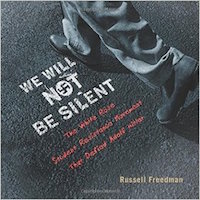 We Will Not Be Silent: The White Rose Student Resistance Movement That Defied Adolf Hitler
We Will Not Be Silent: The White Rose Student Resistance Movement That Defied Adolf Hitler
by Russell Freedman
In his signature eloquent prose, backed up by thorough research, Russell Freedman tells the story of Austrian-born Hans Scholl and his sister Sophie. They belonged to Hitler Youth as young children, but began to doubt the Nazi regime. As older students, the Scholls and a few friends formed the White Rose, a campaign of active resistance to Hitler and the Nazis. Risking imprisonment or even execution, the White Rose members distributed leaflets urging Germans to defy the Nazi government. Their belief that freedom was worth dying for will inspire young readers to stand up for what they believe in.
Kids Book Recommendations
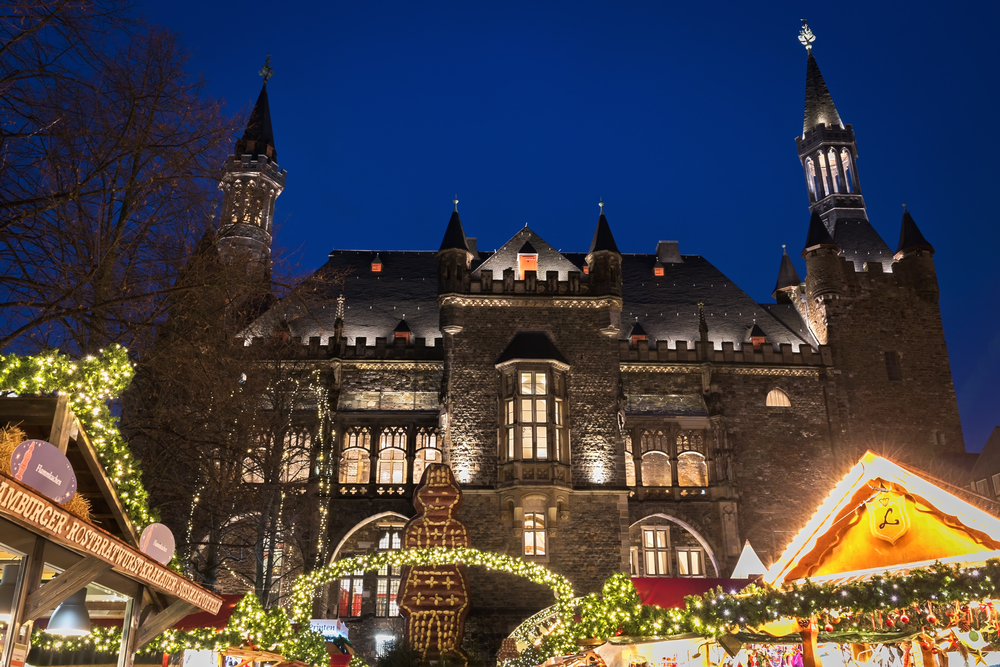
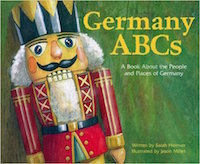 Germany ABCs: A Book About the People and Places of Germany
Germany ABCs: A Book About the People and Places of Germany
by Sarah Heiman
An alphabetical exploration of the people, geography, animals, plants, history, and culture of Germany.
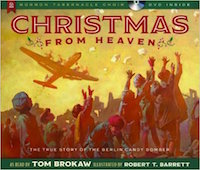 Christmas from Heaven: The True Story of the Berlin Candy Bomber
Christmas from Heaven: The True Story of the Berlin Candy Bomber
by Tom Brokaw
Christmas from Heaven is the story of the humble beginnings of what became a beacon of hope to a war-torn land, the story of Gail Halvorsen, a young pilot in the US Army Air Corps who was assigned as a cargo pilot to the Berlin Airlift, in which US forces flew much-needed supplies into a Soviet-blockaded Berlin.
As he performed his duties, Lt. Halvorsen began to notice the German children gathered by the fences of Tempelhof Air Base. Knowing that they had very little, he one day offered them some chewing gum. From that small act, an idea sprang: He would bomb Berlin with candy. Fashioning small parachutes, he and his crew sent them floating down as they approached the Berlin airport, wiggling the wings of their C-54 as a signal to the children that their anticipated cargo would soon arrive.
Lt. Halvorsen became known by hundreds, if not thousands, of children in Berlin as Uncle Wiggly Wings or The Candy Bomber. Word soon spread, and donations of candy and other supplies poured in from sympathetic Americans. Lt. Halvorsen’s small idea became a great symbol of hope not only to German children in a bombed-out city but to all those who yearned for freedom.
Famed broadcast journalist and author Tom Brokaw brings this remarkable true story to life in a stunning live performance with the Mormon Tabernacle Choir, captured on the accompanying DVD. Also included in the book is a template and directions for creating your own Candy Bomber parachutes.
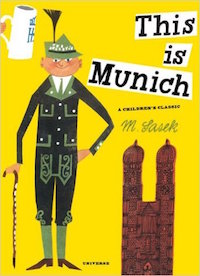 This is Munich
This is Munich
by M. Sasek
Like the other Sasek classics, This is Munich is a facsimile edition of his original book, which was first published in 1969. The brilliant illustrations have been meticulously preserved and facts updated for the twenty-first century. The charming illustrations coupled with Sasek’s playful narrative make for a perfect souvenir that will delight both children and parents.
Sasek introduces children—and many adults alike—to the ancient Bavarian capital. Stops include the New Town Hall, the Frauenkirche cathedral, and Munich’s most famous beer hall.
With bright pictures and snappy commentary, Sasek wittily captures all the fascinating things to do and see in this German seat of culture—This is Munich!
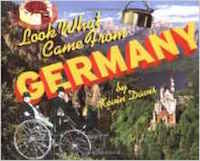 Look What Came from Germany
Look What Came from Germany
by Kevin Davis
Describes many things that originally came from Germany, including inventions, vehicles, household items, customs, animals, fairy tales, and food.
Film Recommendations
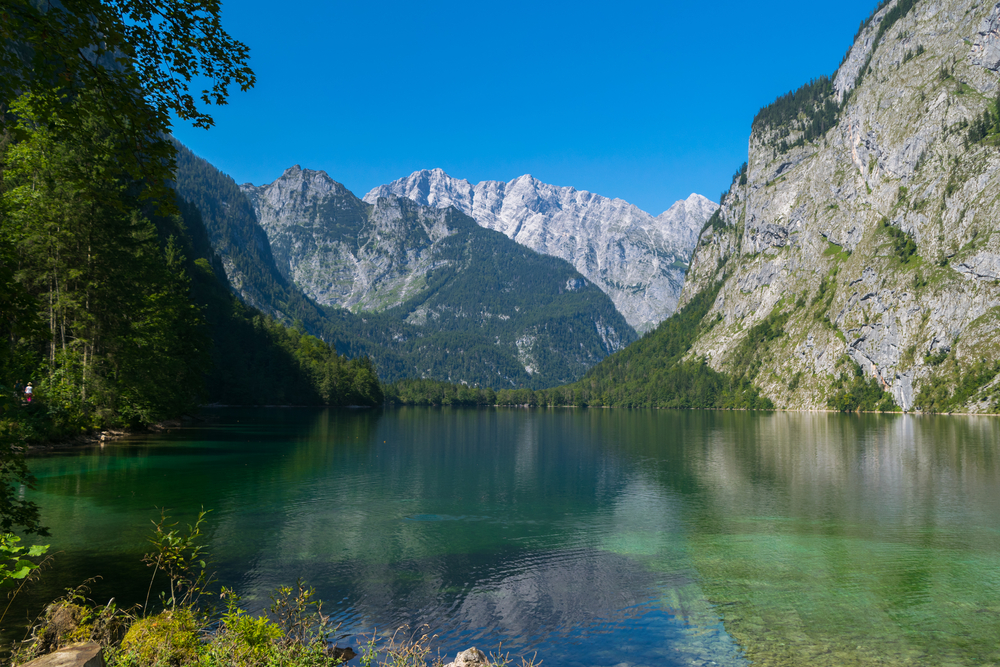
The German history Rise and Fall of the Berlin Wall History Channel
A short history of German reunification / GIER | Documentaries
After the fall of the Berlin Wall, tensions were high as negotiations about Germany’s future began between France, the Soviet Union, the US and Britain. But were Helmut Kohl’s shrewd tactics the real catalyst for reunification?
Autobahn Documentary | Germany Hi-Tech Hi-Way System | Geographic TV
The Autobahn (German: Autobahn, plural Autobahnen) is the federal controlled-access highway system in Germany. The official German term is Bundesautobahn (plural Bundesautobahnen, abbreviated BAB), which translates as “federal motorway”.
Germany’s autobahn network has a total length of about 12,917 kilometres (8,026 mi) in 2014,[4] which ranks it among the most dense and longest systems in the world.
Women in Nazi Germany (WWII)
How anti-Semitic is Germany Today? Documentary with English subtitles
The Making of Merkel with Andrew Marr BBC documentary
On the eve of the German federal elections, Andrew Marr looks at the enigmatic Chancellor of Germany, Angela Merkel. She is the most important politician in Europe and the most powerful woman in the world. Yet she has been criticized by some for her lack of charisma and accused by others of trying to turn Europe into a Greater Germany.
Andrew Marr delves into her childhood and background to discover what has shaped her political vision and style. Growing up in East Germany, the paranoid state at the heart of the Communist Eastern Bloc, then becoming a research scientist, she only entered politics in her mid-thirties after the fall of the Berlin Wall. Her political journey has been marked by caution and compromise – but with occasional flashes of ruthlessness and an unyielding commitment to European Union. In this film, Andrew Marr lifts the veil on a very unusual politician.
Germany: Europe’s growth engine – real economy
Dachau Concentration Camp, Germany (May 1-4, 1945) WARNING- Original footage: Graphic
(LIB 6519) Dachau Concentration Camp, Germany, May 1-4, 1945. CUs, dead bodies in railroad cars. MS, huge pile of discarded prison uniforms. CUs, prisoners unloading bodies from wagons in front of cemetery. Large group of prisoners is sprayed with DDT powder. MS, prisoners in courtyard waving from behind barbed wire fence. In FG can be seen dead German guards. VS, prisoners parading in camp, carrying flags of various nations and pictures of Stalin and Tito. CUs, prisoners quarreling and fighting for food container (seems staged). MS, CUs large pile of bodies in front of building. CUs, sick, emaciated prisoners wrapped in blankets.
Inside Germany’s Sex Supermarkets
The Sex Business: How Germany became “Europe’s Bordello”, and the dark side to the country’s booming sex industry.
Healthcare in Germany
Specifically, we’re going to Germany. Their universal health care system is based on the principles of Bismark, which say that the state should provide only for those unable to provide for themselves. It’s a private insurance system, and it’s the topic of this week’s Healthcare Triage.
Schindler’s List (1993)
In Poland during World War II, Oskar Schindler gradually becomes concerned for his Jewish workforce after witnessing their persecution by the Nazis.
Das Boot
Based on the 1973 novel by Lothar-Gunther Buchheim, this movie depicts the story of the German U-96 submarine or u-boat crew during WWII. As the new Lieutenant Werner discovers the life at sea, he discovers the harsh reality of the u-boat crew’s life, to be constantly watching and avoiding enemy ships from above waters when they are severely outnumbered and gunned. He learns more about his crew and the captain compared to his mentality the captain does not like the Nazi party, to be forced into losing battles and little appreciation. Despite the wickedness of Nazi Germany, it can’t be helped, but to emphasize with the crew that had no choice but to die.
Life is Beautiful (1998)
A Jewish man has a wonderful romance with the help of his humour, but must use that same quality to protect his son in a Nazi death camp.
Defiance
The Boy in the Striped Pyjamas
Sophie’s Choice Official Trailer
Directed by Alan J. Pakula and starring Kevin Kline, Peter MacNicol, Stephen D. Newman, Josh Mostel, Moishe Rosenfeld. Sophie is the survivor of Nazi concentration camps who has found a reason to live in Nathan, a sparkling if unsteady American Jew obsessed with the Holocaust. They befriend Stengo, a young American writer new to New York City. But the happiness of Sophie and Nathan is endangered by her ghosts and his obsessions.
Bridge of Spies Official Trailer
A dramatic thriller set against the backdrop of a series of historic events, BRIDGE OF SPIES tells the story of James Donovan (Hanks), a Brooklyn lawyer who finds himself thrust into the centre of the Cold War when the CIA sends him on the near-impossible task to negotiate the release of a captured American U-2 pilot. Screenwriters Matt Charman and Ethan Coen & Joel Coen have woven this remarkable experience in Donovan’s life into a story inspired by true events that captures the essence of a man who risked everything and vividly brings his personal journey to life.
More Women in the Boardroom | Made in Germany
Decades of commitments and promises have achieved little, as the proportion of men in German boardrooms is still at over 80%. The coalition government in Berlin is planning to introduce a new law with a quota for female executives – despite opposition from the business world. Made in Germany meets one of the few women on a supervisory board in Germany.
Article Recommendations
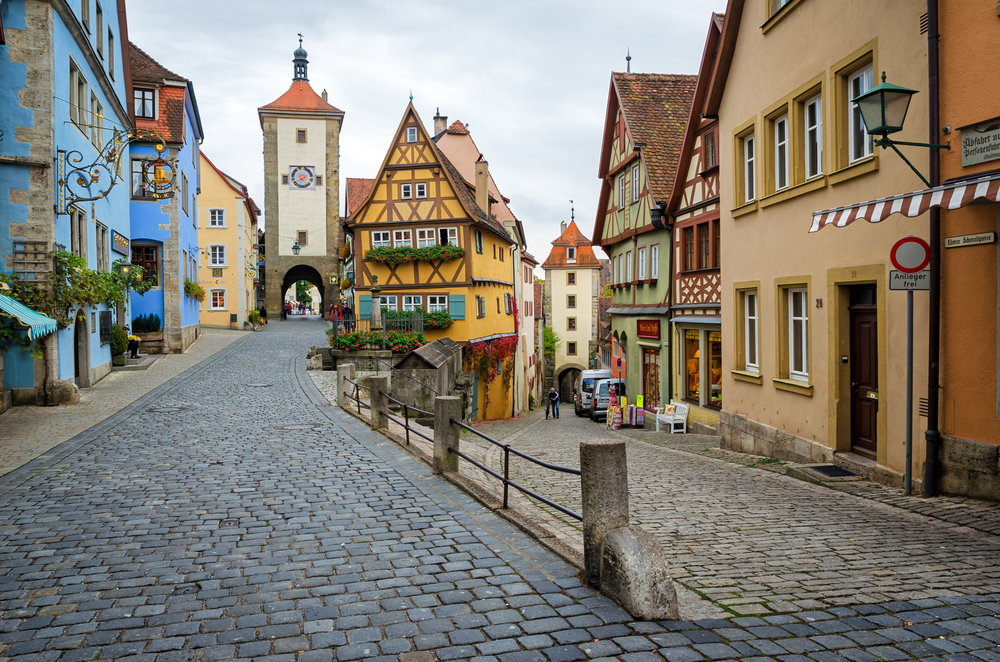
Are the Banks Still Too Big to Fail? – Al Jazeera
Germany Revising 2015 Refugee Figures – Al Jazeera
German Coalition Agrees to Cut Carbon Emissions up to 95% by 2050 – The Guardian
The Rise of Islamophobia in Europe – And How We Can Deal With It – The Guardian
Veiled Bigotry in Germany – NY Times
Healthcare Abroad: Germany – NY Times
Germany’s Secrets for a Steadier Job Market – NY Time Economix
German Far-Right Protests Against Refugees Turn Violent – Al Jazeera
The New Land of Opportunity for Immigrants is Germany – Washington Post
Germany Attacks: What is Going On? – BBC
The Changing Face of Germany’s Industrial Core – BBC
Germany Got it Right by Offering a Third Gender Option on Birth Certificates – the Guardian
Germany Sets Gender Quota in Board Rooms – NY Times
How Angela Merkel Has Lead Germany to New Prominence – Vanity Fair
German Strategy for Adaptation to Climate Change – Federal Government of Germany
Germany Could Be Europe’s Next Big Problem – Business Insider
Germany Has World’s Most Powerful Passport – Business Insider
Germany is About to Start up a Monster Machine That Could Revolutionise the Way We Use Energy – Business Insider
Project Options:
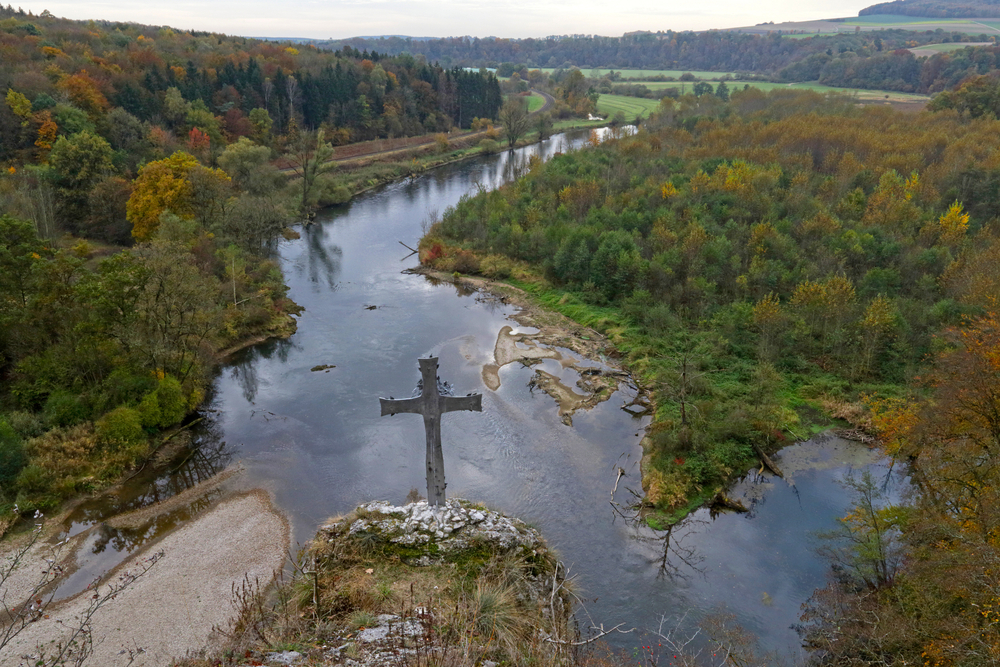
History
Choose an aspect of German history and research it further, or, create a timeline overview of the country’s past, according to your interest. You might be interested in studying:
- Tribal history (early Germanic peoples)
- The Middle Ages
- The Reformation
- The Thirty Years War
- The Enlightment/Renaissance
- The Industrial Revolution
- Bismark’s Empire
- WW1
- Weimar Republic
- WW2
- Cold War Germany
Famous Germans
Germany has produced a number of very notable figures who have affected the history of the world, or their industries. Spend some time examining the lives and work of some of the most notable:
- Charlemagne
- Otto the Great
- Albrecht Dürer – Artist
- Hugo Boss – Designer
- Marcus Goldman – Founder of Goldman Sachs
- Ferdinand von Zeppelin – Creator of the Zepplin
- Goethe – Author/Poet
- Albert Einstein – Physicist
- Johannes Kepler – Astronomer
- Johann Sebastian Bach – Composer
- Ludwig van Beethoven – Composer
- Georg Friedrich Händel – Composer
- Engelbert Humperdinck – Composer
- Felix Mendelssohn – Composer
- Richard Strauss – Composer
- Hans Zimmer – Composer
- Immanuel Kant – Philosopher
- Friedrich Nietzsche – Philosopher
- Rudolf Diesel – Inventor of the Diesel Engine
- Konrad Adenauer – First elected Chancellor
- Angela Merkel – First female Chancellor
- Daniel Gabriel Fahrenheit – Physicist
- Johannes Gutenberg – Father of modern printing
- Levi Strauss – Inventor of Jeans
- Pope Benedict XVI – Catholic Pope
- Dietrich Bonhoeffer – Theologian, Holocaust Victim
- Martin Luther – Father of the Protestant Reformation
Composers & Music
Germany has been a hub for music since the middle ages. The surge of composition during the Renaissance and Enlightenment carried the German music scene forward, with the emergence of some of the world’s most famous composers of all time.
Choose one composer and become an expert in his work. Or, compare and contrast several German composers from a variety of time periods. Or, consider how German music has changed over the centuries and reflected culture. How is this still happening today? Highlight some of the modern greats of German music and focus on what it is about their music that resonates with the masses.
A very short list of only the most obvious German composers includes:
- Johann Sebastian Bach – Composer
- Ludwig van Beethoven – Composer
- Georg Friedrich Händel – Composer
- Engelbert Humperdinck – Composer
- Felix Mendelssohn – Composer
- Richard Strauss – Composer
- Hans Zimmer – Composer
There are many more. Find them and enjoy their work!
Rise of Hitler
When we consider the horrors of the Holocaust and WW2 Germany, it is often wondered aloud how Hitler could have risen to such a place of power that he could have lead an entire nation in genocide. Was it his charismatic personality? The desperation of a nation not recovering adequately from the first World War? An excellent propaganda campaign? Or the intersection of a number of factors.
Find out how Hitler came to power. Study who he was as a young man, his family history and the early formative influences on his character. Learn about the motivations that lead him to write Mein Kampf and his steady ascent to power. Who supported him, and why? What was his primary platform that the common Germans found so appealing? Once he gained power, how did he centralize and secure it? What was his personal life like in comparison to his public and political life? Were there any groups opposing him as he came to power? If so, who were they and what was their message. What lessons can we apply from this man’s life and rise to today’s politics and our own thought process around electing leaders?
Holocaust
The Holocaust has become the defining moment of German history. The murder of about six million Jewish people, nearly two thirds of the Jewish population in Europe, shocked the world, and continues to. When you travel to Germany take the time to visit at least one of the Holocaust sites or memorials. A visit to one of the concentration camps will be a very difficult day, but an important one in honoring the loss and insulating ourselves as individuals against allowing the tragedy to be repeated in other places and other ways during our lifetime.
The Holocaust, as a whole, is almost too great an atrocity to take in, but the atrocious whole is made up of individual stories, individual people. Take the time to uncover the individual stories of the places that you visit and the people who lived them. Also, examine the cultural shifts that allowed the Holocaust to happen on the scale it did. Examine the blindness of the German people at the time and the direct participation of so many in the genocide. What can we learn about politics, herd mentality, and fascism that can be applied to our modern political climates? After visiting the sites and studying the stories, write, or produce a video, about how this affected you and what you believe is important in keeping this from happening again.
Wine Making
Germany is known for producing some of the best wines in the world, particularly white wines. The Rhine and Mosel Valleys are thick with vineyards, strung between picturesque castles. What is it about this part of the world that produces such great wine (what are the environmental factors, as well as the historical and cultural factors?)
Visit some wineries. Taste the results. Learn about German wines. Talk to the growers and the vintners about what makes their particular wine so special.
German Excellence
Germany has a reputation for attention to detail and excellence. German made products are sought after for their quality and excellent design. How did this design culture of excellence emerge? What are the cultural factors that have contributed to it? Who were the pivotal characters in the industrial history of the country that moved Germany towards excellence in production and design? What is Germany known for, right now, that is first in it’s class of products?
The Reformation
The Protestant Reformation began as a slow boil of discontent across Europe with a number of evangelists for change seeding the movement. However, the Reformation got it’s big push from Martin Luther, a Catholic priest who was calling for change and reform within the church, when he nailed his 95 theses to the door of the Wittenberg Cathedral. Rather than reform of the existing church, what began was a split that would lead to splintering that continues to this day within the Protestant movement.
Who was Martin Luther and what were his motivations? What were the 95 theses? What reforms were Luther and his compatriots calling for? How did the Catholic church respond? How did Luther’s movement carry him forward? What were the direct results, within his lifetime, of his actions in Wittenberg? Do you think he was right?
Profiles of …..
Conduct a series of at least five interviews within a country. The point of the exercise would be to get a well rounded view of what it is like to live in the France from a variety of ages, incomes, employments and experiences. This could be conducted as video, or as text. Do an in depth analysis of the experience/information.
People you might profile:
- Farmers
- Teachers
- Restaurant owners/workers
- Clergy or Nuns
- Government officials
- Doctors or nurses
- Cafe owners
- Street vendors
- Children
- Parents
- Drivers
- Artists or musicians
- Laborers
- Cab drivers
- Long term expats
Problems & Solutions
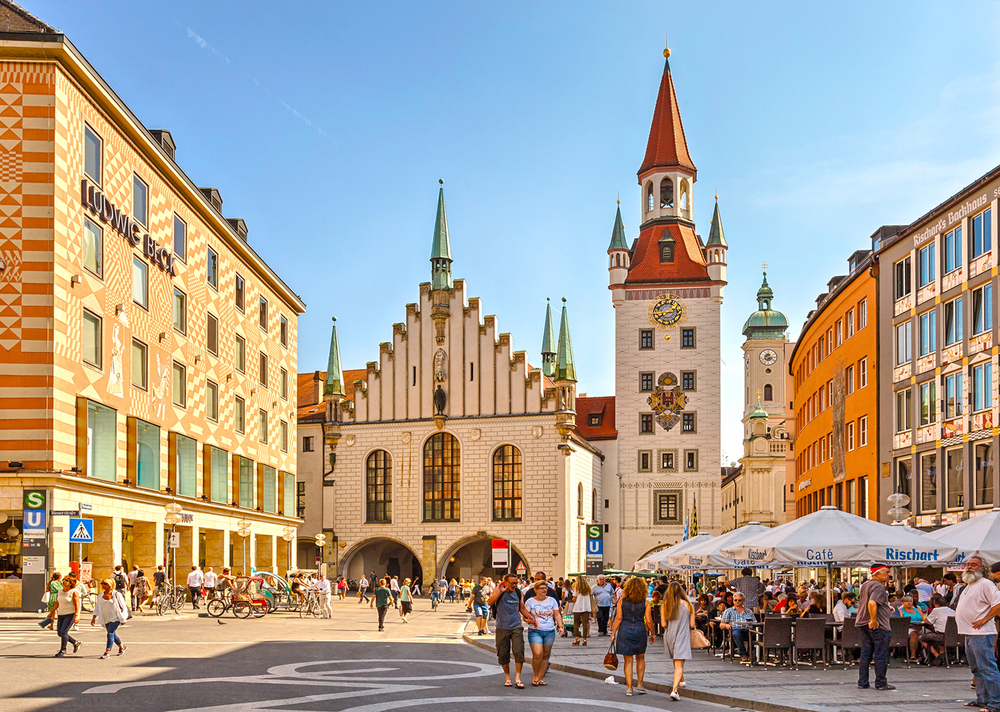
Immigration
In the past few years immigration has become a serious problem for Germany and a point of contention, politically and socially, as people disagree over the correct approach to immigration and the integration of immigrants once they are resident in Germany. A spate of crimes and terror attacks, some attributed to immigrants, are not helping to quel the unrest over immigration.
Why has there been such a surge in immigration to Germany in the past decade? How has the refugee crisis impacted Germany? Where are the immigrants going and what are they doing to integrate into German society? What is the current political position towards immigrants? Is Germany truly a, “land of opportunity,” for immigrants, as the article listed above suggests? Or is it something else. Study the immigration crisis and also find individuals to interview. Discuss the struggles and the strengths of immigration in Germany. Possibilities include employers, German citizens, local politicians, and the immigrants themselves. What are some of the initiatives, both public and private, that are working to integrate and aid the immigrant population?
Reunification
After WW2 Russia authorized the local political authority in East Germany to build a wall between East and West Germany, a line that was drawn on the map between Communism and Democracy, among other things. The wall went up quickly and many people were trapped on one side or the other. Families were separated. The post war experience was very different on opposite sides of the wall.
What was the reasoning behind the construction of the Berlin Wall? What was the experience of wall construction like for people on both sides, as well as those constructing it (find their stories). Some movies, like the recent Bridge of Spies, tell some of the stories of the division and life on both sides. Explore the difference between East German life and West German life. There are many adults in middle age in Germany now who grew up behind the wall entirely and their experiences are fascinating as well as educational. See if you can find some.
The Berlin Wall came down almost as fast as it went up. What was the catalyst for deconstruction? What was the political impact of the removal of the wall. What has reunification been like on both sides of the divide? Are there cultural differences or divisions remaining between what was East and West Germany. What is the economic condition of the country along that same divide? Is reunification complete, or are there still areas of disparity. What has been the legacy of communism in the former East Germany?
Education
What is the public and private education system like in Germany? Examine the process, from age of entry through university. What is the cost for university in Germany?
Germany has taken some criticism over the “tracks” that students are directed on, from an early age, restricting their choice in higher education. It is also one of the few countries in the world where home education is completely illegal and grounds for removal of children from a home.
Do some research on conventional education in Germany as well as alternative forms of education as they are emerging. How do these serve the German population well? Where is reform needed? What do you think about the restriction of some forms of alternative education as it relates to both the rights of parents and children as well as the over arching needs of the state? What is Germany’s official position on this? Who is working to change it, and how?
Climate Change & Energy
Climate Change is a global problem. Germany is progressive in it’s efforts towards the development and implementation of alternative energies, as well as conservation.
Examine climate change as it relates specifically to Germany’s location and weather patterns. Study what is being done within Germany to mitigate the human effect on climate. Look at progress in alternative energies, individuals and companies that are researching forward to solve the big problems that humanity is facing, and the ways in which Germany is leading Europe in addressing Climate Change. Are there ways in which Germany is lagging behind other industrialized nations?
Cultural Assignment Options
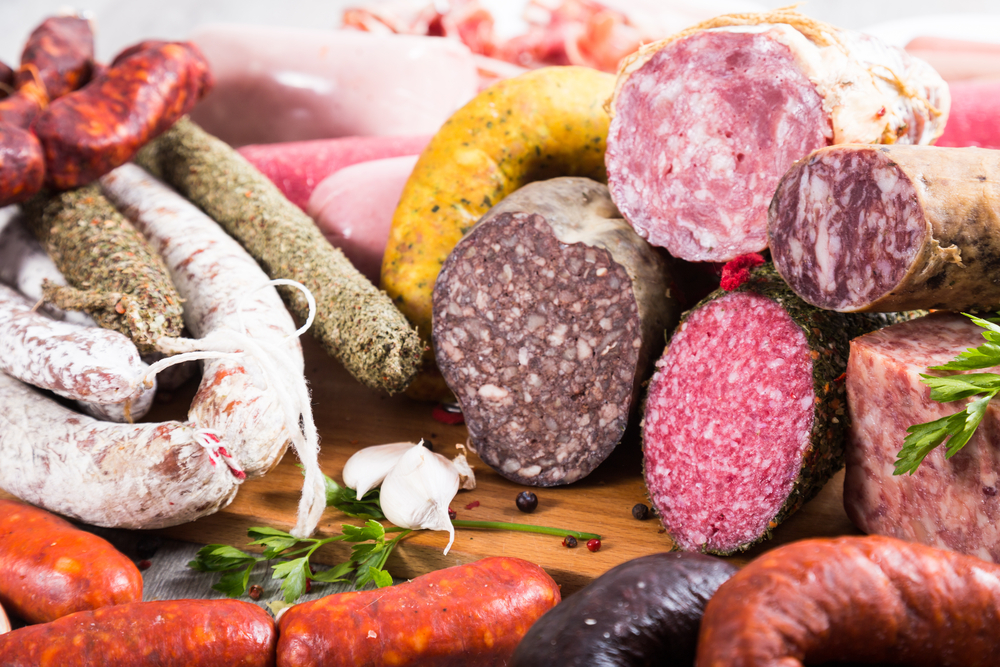
Food
Germany has a legacy of heavy food and lots of it. Sausage, schnitzel, breads, cakes, pies, thick roasted meats, root vegetables and cabbage, sauerkraut and other fermented vegetables are staples. Wine and beer play important roles in the food culture of Germany, as do ciders.
Be sure to try as many things as you can that are new to you while you are in Germany. Definitely taste your way through the bakeries and sausage markets. If you can manage to find a local Alstadt Fest, you won’t be sorry. Consider doing a dedicated tour of wineries or breweries to learn as much about the different methods and regions for brewing around the country.
Make a record (or a video!) of all of the new foods you’re trying as you travel through Germany.
Meaningful Connections
What is a meaningful interaction? You get to decide that. In general, it should be an interaction in which cultural exchange took place and you learned something. Often this will be with a local person; sometimes it will be with another traveler.
Sometimes these interactions look like very little on the outside but are totally life changing on the inside. Other times, they are rock your world amazing from every angle. It could be a meal shared, an afternoon’s excursion, a discussion that opens your eyes in some way, a self revelation that happened without any words exchanged at all.
Spend a day with a local individual or family. Document your experience in photos, interviews and the written word. The best way to interact with locals is to just start chatting with them at markets, on tours or on the street. You can also ask other travelers if they have met anyone who has offered some insight into life in the country. If you are a family who have children attending a local school then have a party, invite a parent to coffee, basically just open up your home to new relationships.
Take a Class
There are many options! Don’t be limited by this list:
- Cooking
- Language
- Art or Crafts
- Aboriginal dot painting (in the outback)
- Literature
- Yoga
- Aboriginal Dance
- Music, didgeridoo lessons, perhaps?
Museum Visits
Germany has some world class museums in the big cities and numerous hole in the wall local museums that provide local insight.
Save your ticket stubs!
Volunteer
Volunteering is a great way to get to know a local community and give back a bit to the places that you choose to travel. There are lots of ways to do this, both organized and arranged privately, as well as impromptu opportunities that will pop up.
If you’re looking for a list of volunteer opportunities in Germany, Transitions Abroad has some resource listings. This site has detailed information about how foreigners may legally participate in volunteer work in Germany and who may not, depending on the sort of visa you hold. Please be advised that TAP is not recommending these, only presenting them as a list of possibilities. Vet your volunteer options carefully.
Live local
Get out of the hostel, rent a place in a local village, or do a homestay. Through websites like Airbnb it’s easy to find places to live locally. Consider a co-living space to develop community with like minded travelers while diving a little deeper and going a little bit more local. Coconat, in Berlin, is one option.
Photo essay or a blog description of why living local was different than living in a hostel. How did this experience change the economics of your stay? What did you learn about the way locals live? What challenged you? What would you do differently next time?
Work Stay
Through an organization like WWOOF, HelpX, or Workaway you can arrange for an opportunity to work in exchange for your room and board in a number of capacities, from farm labour to hospitality. Lots of students make use of these experiences to lower the cost of their travels, while at the same time learning valuable skills or “trying out” various career areas that interest them.
Request feedback in the form of a short evaluation that can be used later for a CV or reference
Public Transportation Project
Take as many types of public transportation as possible. The German train system is fantastic and goes everywhere you want to be. You can even take your bicycle on the trains. The network of cycle paths is one of the best in Europe, making Germany a delight to pedal around. The cities have excellent public transportation as well.
Challenge yourself to take every type of public transportation available while you are in Germany. Create a photo essay or videologue of your adventures. What did you learn?
Attend a Religious Observance
Germany is a fairly secular society with a rich religious heritage. Did you know that in Germany you can designate a portion of your taxes to support your church denomination? There are the usual denominations of Catholic and Protestant churches in Germany and a rising number of “Free Churches” which are not linked through tax support to the government. There is a growing Islamic population, as well as a range of other religious traditions represented in minority populations Take some time to attend various religious observances and see what you can learn. Don’t be afraid to ask questions. How does the religious climate in Australia compare with what you grew up with?
How to Create Your Own Course Work
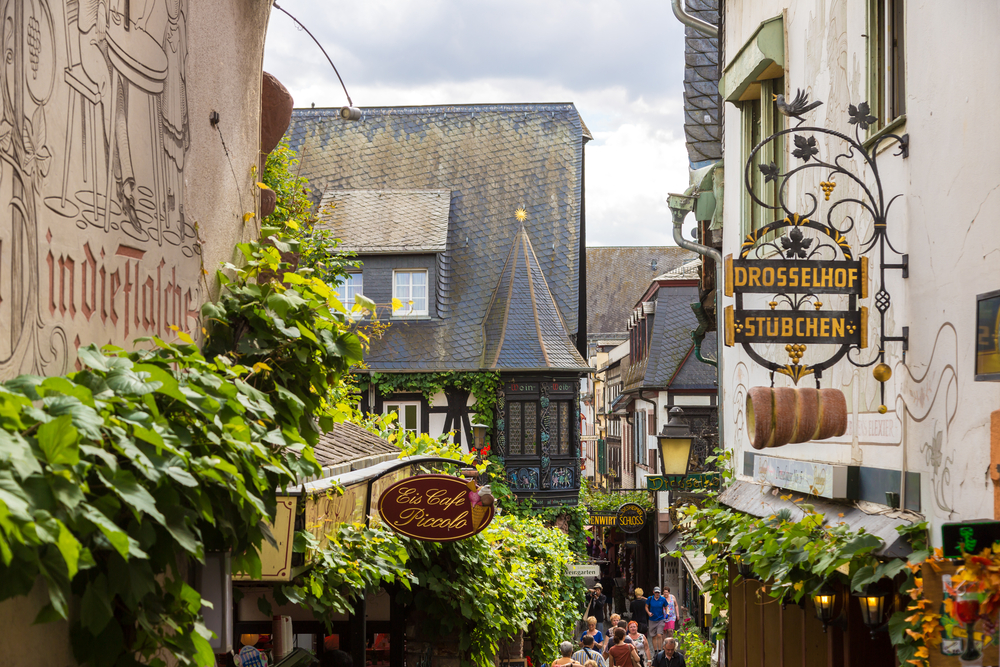
Ask
Learn to ask for what you want. If you meet someone interesting, ask them to teach you. Ask them for an interview. Ask to shadow them for a day or a week. You’ll be surprised at how eager people are to share what they know and teach when someone shows actual interest. Learn to ask questions. Learn to take social risks by putting yourself out there as a learner.
Plan
You have an idea or an interest. Something surprises you on your journey and all of a sudden you have a burning desire to know more. Plan your attack:
- Narrow your field of study to a particular question or topic.
- Compile resources: Look for teachers. Who knows what you need to know? Or who can you interview to learn more? Are there books or videos on the topic you’re interested in?
- Quantify it. How will you demonstrate what you have learned? A research paper, a video project, a photo essay, through art or music, a blog post, a published piece, an interview series, a mini documentary or do you have some other idea?
Produce
Produce a quality piece of academic work that reflects your experiential learning. The whole key to quantifying outside the box learning is to translate it into something that reflects the value of what you learned and how it contributed to your overall educational process.
Perhaps this will be as simple as a traditional research paper, depending on the depth and length of your study this could be as short as three pages or as long as a dissertation. Maybe you’ll produce a video for YouTube, or something grander, like a mini-documentary. Perhaps you’ll do something concrete instead, an art, or community action project and you’ll tell the story through a photo essay, or a series of blog posts. The possibilities are limited only by the resources you have at hand. Get creative. Think outside the box and truly experience your education.
Do You Have Anything to Add to This Resource Page?
We’re actively seeking to grow these resources in an open-source spirit. Please email jenn(at)bootsnall(dot)com with your edits or submissions of new information or materials.
Thank you!
